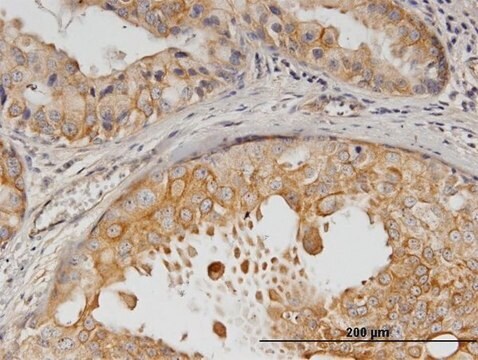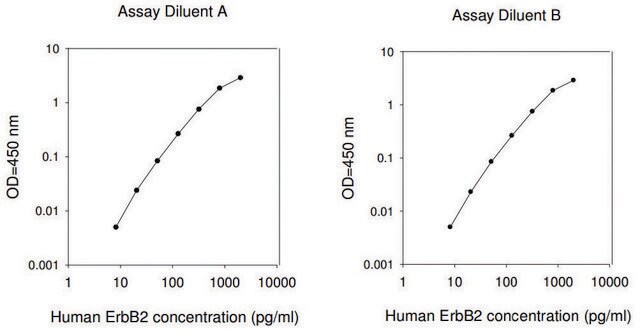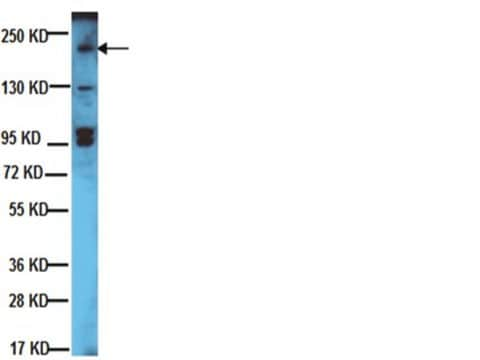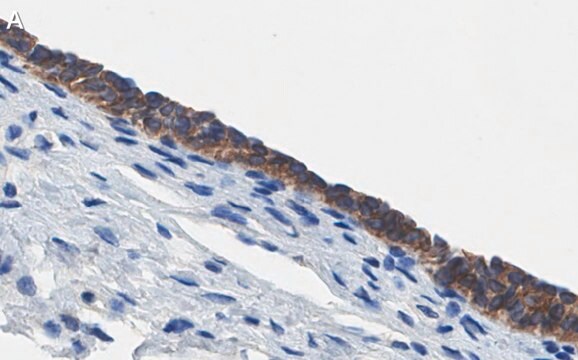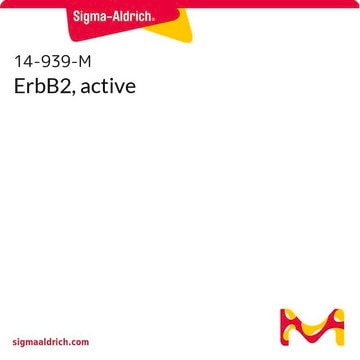E2777
Monoclonal Anti-c-erbB-2 antibody produced in mouse
~2 mg/mL, clone HER2-96, purified immunoglobulin, buffered aqueous solution
Synonym(s):
Anti-HER-2
About This Item
Recommended Products
biological source
mouse
Quality Level
conjugate
unconjugated
antibody form
purified immunoglobulin
antibody product type
primary antibodies
clone
HER2-96, monoclonal
form
buffered aqueous solution
mol wt
antigen 185 kDa (complete protein)
antigen 97-115 kDa (extracellular ligand-binding domain)
species reactivity
human
concentration
~2 mg/mL
technique(s)
immunoprecipitation (IP): 0.5-1 μg/test using RIPA lysate of cultured CB2 cells (CHO cell line transfected with erbB-2)
indirect ELISA: suitable
microarray: suitable
isotype
IgG1
UniProt accession no.
shipped in
dry ice
storage temp.
−20°C
target post-translational modification
unmodified
Gene Information
human ... ERBB2(2064)
General description
Immunogen
Application
- enzyme linked immunosorbent assay (ELISA)
- immunoprecipitation
- immunohistochemistry
- studies on receptor internalization, phosphorylation, ligand binding and tumor growth inhibition
Biochem/physiol Actions
Physical form
Disclaimer
Not finding the right product?
Try our Product Selector Tool.
Storage Class Code
10 - Combustible liquids
WGK
WGK 2
Flash Point(F)
Not applicable
Flash Point(C)
Not applicable
Certificates of Analysis (COA)
Search for Certificates of Analysis (COA) by entering the products Lot/Batch Number. Lot and Batch Numbers can be found on a product’s label following the words ‘Lot’ or ‘Batch’.
Already Own This Product?
Find documentation for the products that you have recently purchased in the Document Library.
Our team of scientists has experience in all areas of research including Life Science, Material Science, Chemical Synthesis, Chromatography, Analytical and many others.
Contact Technical Service
